SECONDARY NEWS
From the Assistant Principal
Miss Kim Bailey
kbailey@arm.catholic.edu.au

SECONDARY NEWS
From the Assistant Principal
Miss Kim Bailey
kbailey@arm.catholic.edu.au
SUBJECT SELECTION INFORMATION SESSION – TUESDAY 27 MAY @ 5.30 PM IN THE HALL
We will hold our Year 11 and 12 Subject Selection Information Session next Tuesday at 5.30 pm in the Hall. There will be a brief introduction followed by the opportunity to speak with teachers about the courses on offer. We hope to see as many families as possible attend the session.
Year 10 Visit to O’Connor Catholic College
On Friday May 9th our Year 10 students travelled to Armidale to visit the senior students at O’Connor High School to experience a day in the life of a Year 12. Holy Trinity students were welcomed by the Armidale staff and then spent time in rooms with Year 12 Advanced English, Advanced Maths and Standard Maths. This experience proved valuable as our students received an experience of content, learning strategies and how senior students collaborate to assist the learning of each other.
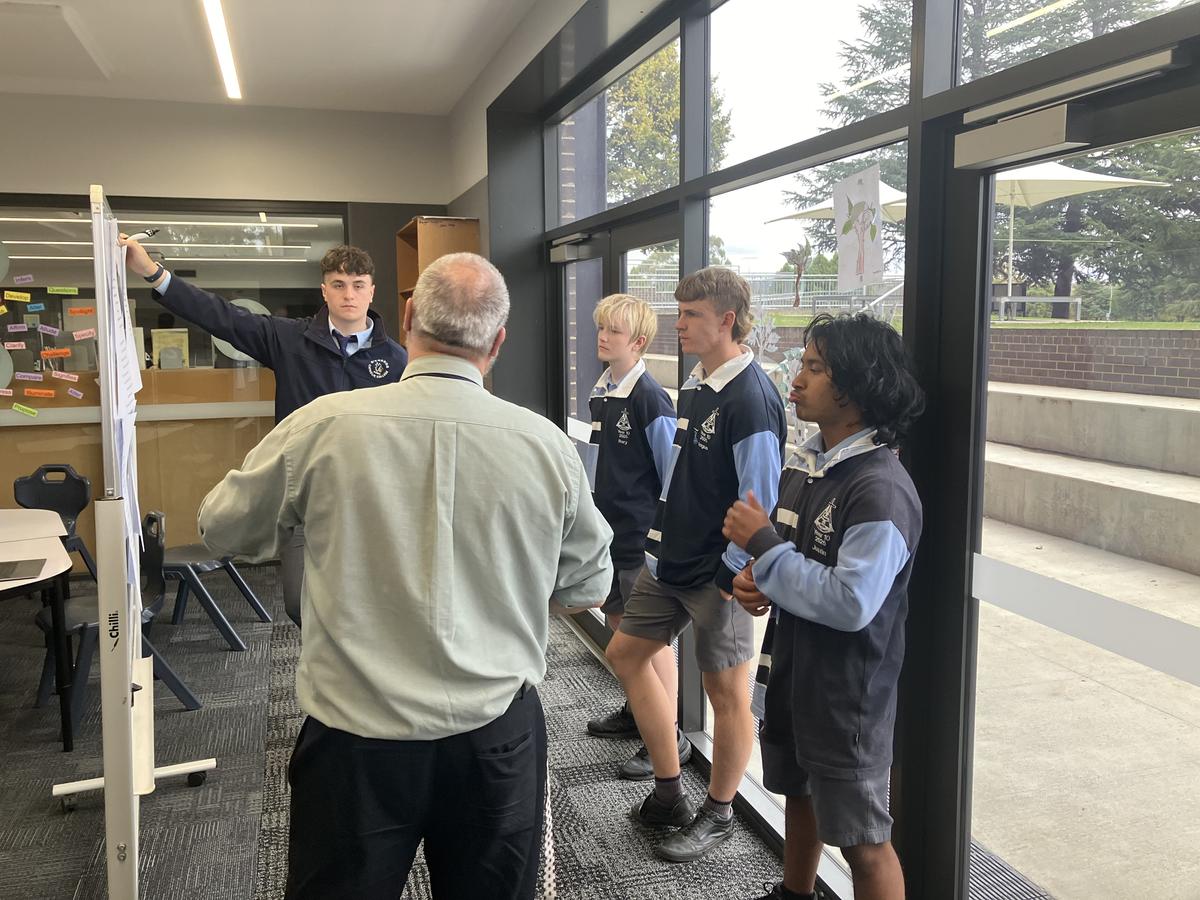
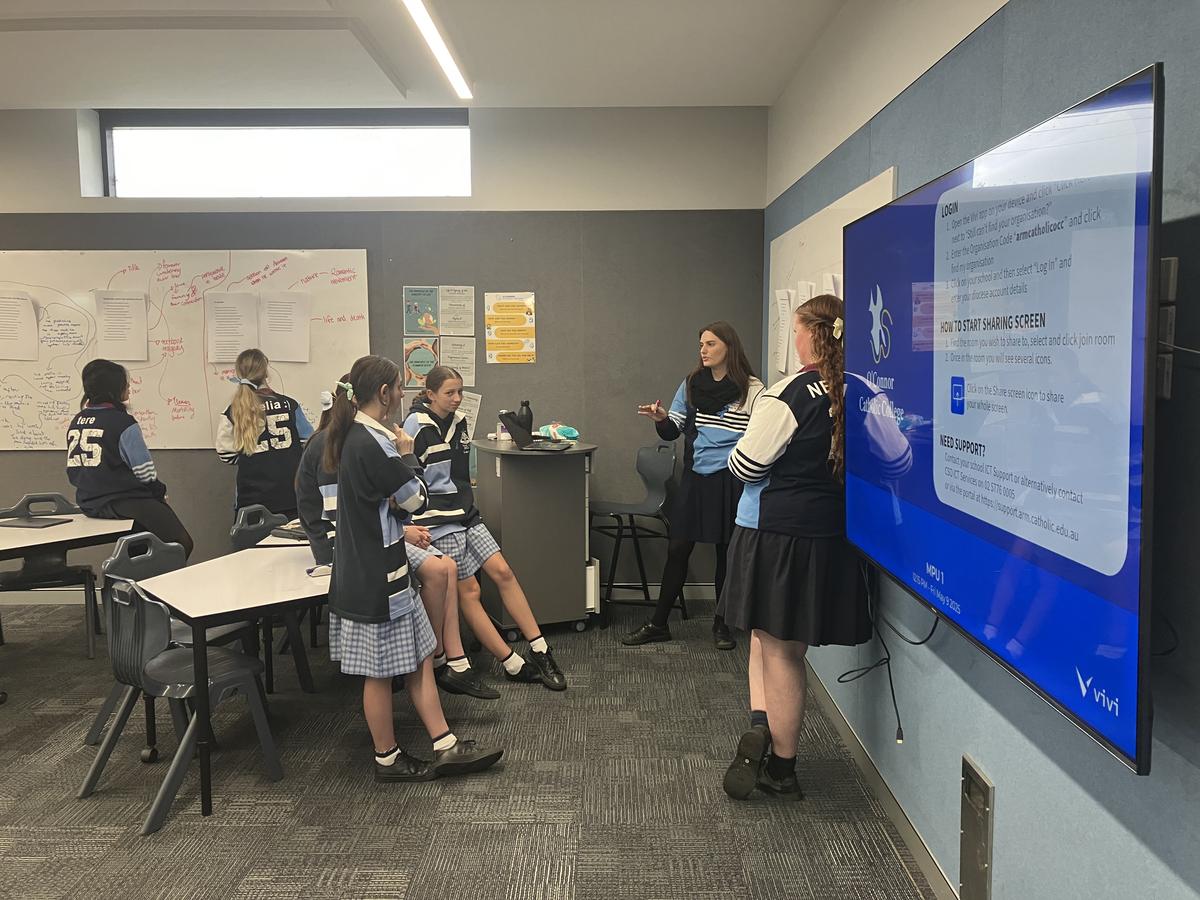
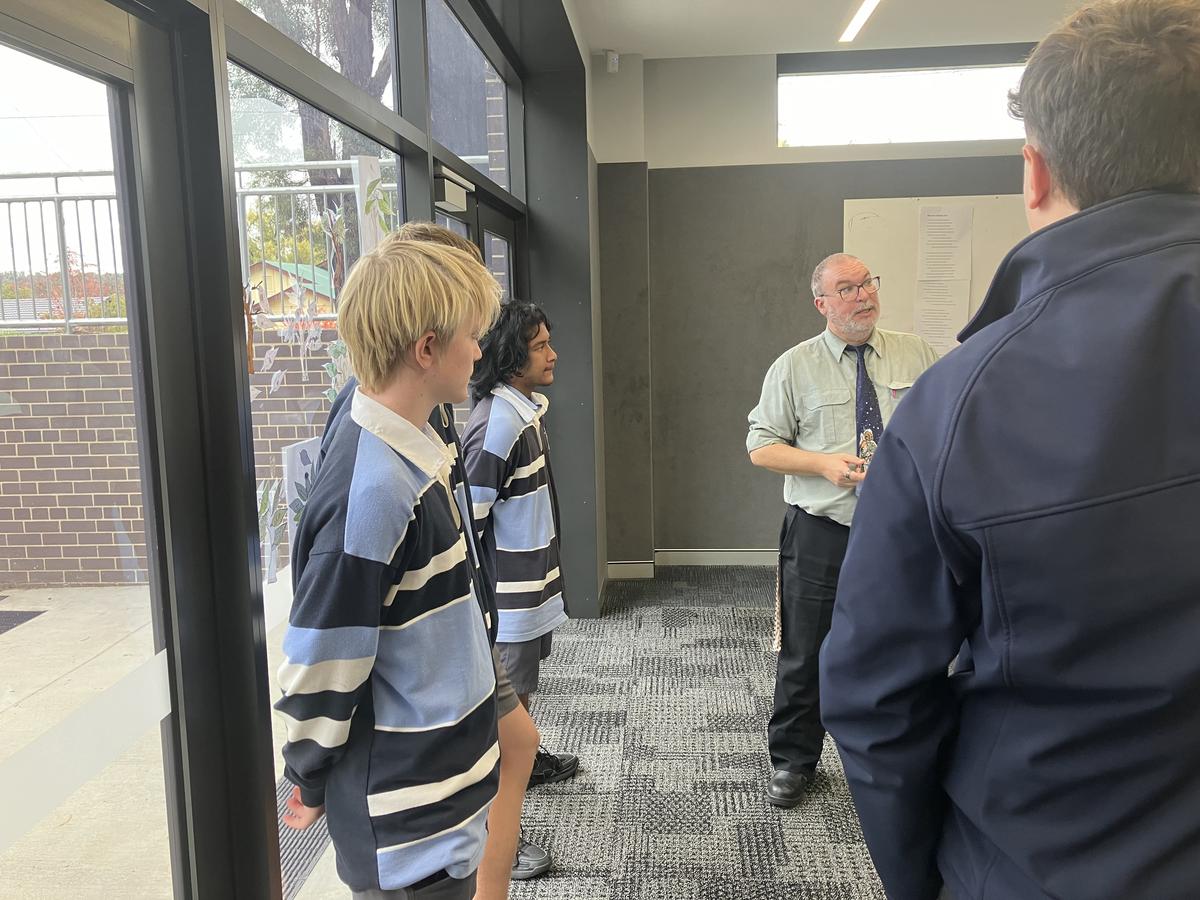



Chess
Congratulations to the chess team who were successful in their Round 2 matches against Tenterfield High School. Well done to Bethany Pearse, Seth O’Neill-Yee, Glen Walford and Tamsin Pettiford.
Diocesan Cross Country and Tennis
Congratulations to the students who represented the school at the Diocesan Cross Country and Tennis last week in Armidale.
Year 9 da Vinci Decathlon Team
Good luck to the Year 9 team who are heading to Sydney to compete at the State Finals at Knox Grammar School in Sydney. Thank you to the families who assisted with transport and to Miss Green for supervising the students during the competition.
Diocesan Soccer
Good luck to our teams who will be competing at the Diocesan Soccer Carnival tomorrow.
U14s and U16s Girls’ Rugby League Gala Day
Good luck to the rugby league teams at the Gala Day on Thursday, 29 May.
From the beginning of June, all students are required to be in full winter uniform. Many students are already wearing the winter uniform and are to be congratulated for their efforts in being dressed according to the uniform code. If students are not correctly attired, they are required to present a note to their Pastoral Care teacher and to remedy the situation as soon as practicable.
Please be aware that representative sports jackets, cattle team shirts and other sweaters are not acceptable uniforms for day-to-day wear. The uniform shop has a list of requirements for all students. If there are any queries, please contact the school.
This term, there will be no formal semester exam week. Assessments will be ongoing during the term, and a number of formal in-class tasks will be undertaken. Students are in the process of completing assessment tasks, which may be in the form of tests, assignments, practical or group tasks, to name a few. It is essential that they prepare adequately and complete tasks by the due date.
Students will be provided with the necessary information. For students to achieve their best possible results, it is essential that they adequately prepare for these assessments.
As mentioned, it is a busy term ahead. Students need to ensure that they are well prepared for all assessments. Regular application to homework and revision will assist students in all subject areas.
When helping students with assignments, the focus is often just on the research process. These tips will focus on getting started with the writing.
CHECK REQUIREMENTS
So you have done all of your research, collected the information you will need and are ready to start writing your assignment. Before you begin, revisit the requirements, format and criteria for the task. Be very clear on what the assignment is asking you to do and any guidelines you have been given for the assignment. If you are unsure at all, check with your teacher. It can be good to have the assignment questions written on an index card that you keep next to you while working so you stay focused on answering the question and meeting the requirements.
PLAN A STRUCTURE
Your approach will vary depending on the style of your assignment (eg, essay, speech, presentation or report), but regardless of this, unless it is explicitly given to you, you need to decide the structure of your assignment. Have you determined the main points, the headings and subheadings? Have you made sure you have gathered information about all parts of the question? Have you found any diagrams, images, photos, or quotes needed to reinforce any points? Before you begin the writing, create a structure for your work listing all of the headings and subheadings you will write about. Keep checking back with the criteria or requirements to ensure you are answering the assignment questions.
JUST START WRITING
The best thing to do if you have no idea how to begin your writing is to just start writing. Now this may sound a little strange, but many students do not start writing because they want what they write to be perfect or ‘right’ the first time. Don’t worry whether your writing is up to standard at this stage. Instead, concentrate on getting your ideas down on paper or screen. Choose a section and start putting down ideas on the sorts of things you could include in that section. The hardest part of any writing is starting. Once you start putting down ideas, this generates other ideas, and before you know it, you have some text to work with. So even if you have no idea where to start, just write or type ‘I don’t know what to include here’ and even writing this will get your subconscious thinking about what could be included.
USE YOUR NOTES
Once you have started, you can use your notes from the research you did to build your ideas and arguments for your assignment. This means that you integrate your own thoughts and ideas with the research you have done, using this to help support your ideas. Make sure that you reference correctly, this means that when you use materials you have researched, particularly quotes, you make it clear where this material has been sourced from. You may find holes in your research as you progress and have to do additional research about those areas.
BE CREATIVE
Unlike an essay, you generally have a bit more scope in how you present an assignment. Think about how you can bring the material to life for the reader. Photos (appropriately referenced) are a good start, and sometimes diagrams, tables, examples, statistics, or flowcharts may be appropriate. You might use lists, bullet points or colour to make the material more user-friendly. Your teacher will be reviewing many assignments on the same topic, so what can you do to make yours stand out or have a unique angle.
REVIEW AND REVIEW AGAIN
Have you ever had that experience where you write something, leave it, come back the next day and read it again and find a whole heap of errors you didn’t see the first time? This is why it is important to space out your work on your assignment over a number of weeks and days. You need time to edit your work and you need space between edits. When you come back with a fresh eye, you will be able to look at your work from a different perspective and get ideas on what you could do to improve your work. As you review your work, look for spelling and grammar errors, possible repetition or unclear areas. Reading your work out loud is surprisingly a great way of locating errors or things that don’t make sense.
(Prue Salter)
We all know that sleep is important for general health, for growth and development and for emotional wellbeing. You may also know that important memory processes take place while you are sleeping, ensuring you retain what you are learning and studying.
Perhaps you have heard that teenagers need between nine and ten hours of sleep per night. But where does this come from, and how valid is this claim?
In 1980, Mary Carskadon of Stanford sequestered a group of adolescents in the university’s sleep laboratory for several days, letting them sleep for as long as they wanted, up to 10 hours. She found that the teenagers slept just over nine hours, with very little variation. This single “naturalistic” study is the primary basis for the adolescent sleep recommendation. However, some researchers argue that just because teenagers slept nine hours when left alone does not mean that this is the best thing for them, just like letting people eat whatever they want is not necessarily the best thing for their health. So there is no definitive answer at this point in time.
The amount of sleep needed by teenagers is most likely very individual, just like it is for adults. It is probably safe to assume that adolescents need more sleep than adults and that the average for most people is at least 8 hours of sleep per night. Pay attention to the signs and have students listen to their bodies. If they lie down in bed and fall asleep instantly, this is a sign that they are not getting enough sleep for their body. It should take at least 15 minutes to fall asleep. If they wake up in the morning and are feeling exhausted, then check all lifestyle factors: are they getting enough sleep, eating healthily and getting enough exercise?
If teenagers are sleeping in for many hours on a weekend, unfortunately, this does not mean they are “catching up” on their sleep. According to University of Texas Southwestern sleep specialist Dr. Gregory Carter, when we think we’re catching up on sleep, what we’re really doing is messing with our circadian cycle — the body’s internal clock which dictates sleep patterns. Excessive sleeping in is, in fact, a signal that during the week, students need to go to bed earlier. The aim is to work out the optimum bedtime so that the need to catch up on large amounts of sleep on the weekend is eliminated.
There is nothing wrong with having a power nap in the afternoon when students get home from school, as long as the nap is no longer than 40 minutes. A short nap can help students regain their energy levels and allow them to focus on the work they have to do that evening. However, a longer nap will also disrupt sleeping patterns for that night.
This schedule outlines some of the key events for Year 10 this term. Assessment dates may change, but students will be given appropriate notice.
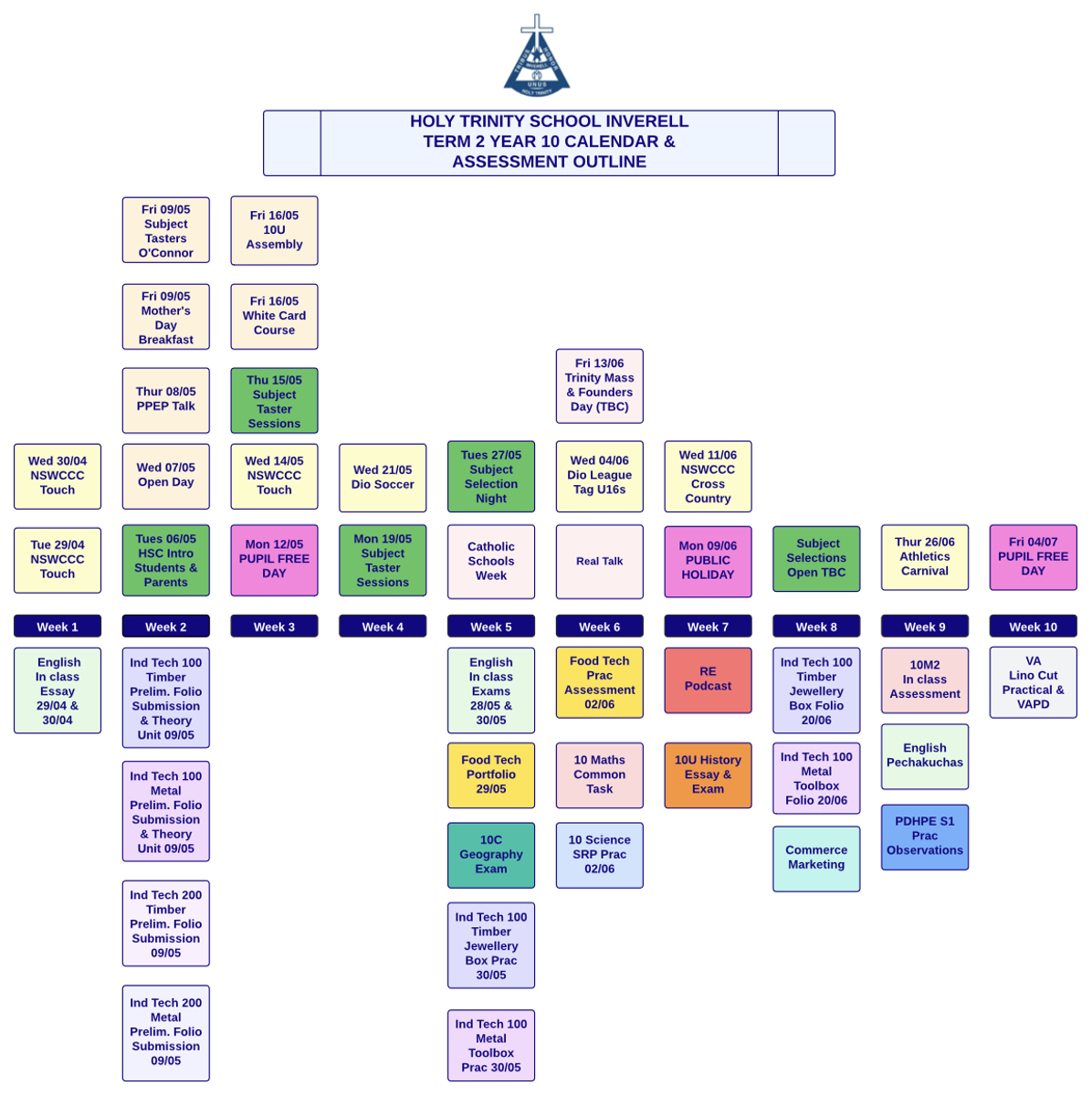

Google Classroom allows teachers to create classes, distribute paperless assignments, post announcements and class questions, and provide feedback, all through an intuitive, student-friendly interface.
The flyer and link below provide you with more information about Guardian Summaries. Please contact Miss Bailey if you have any further questions or issues.
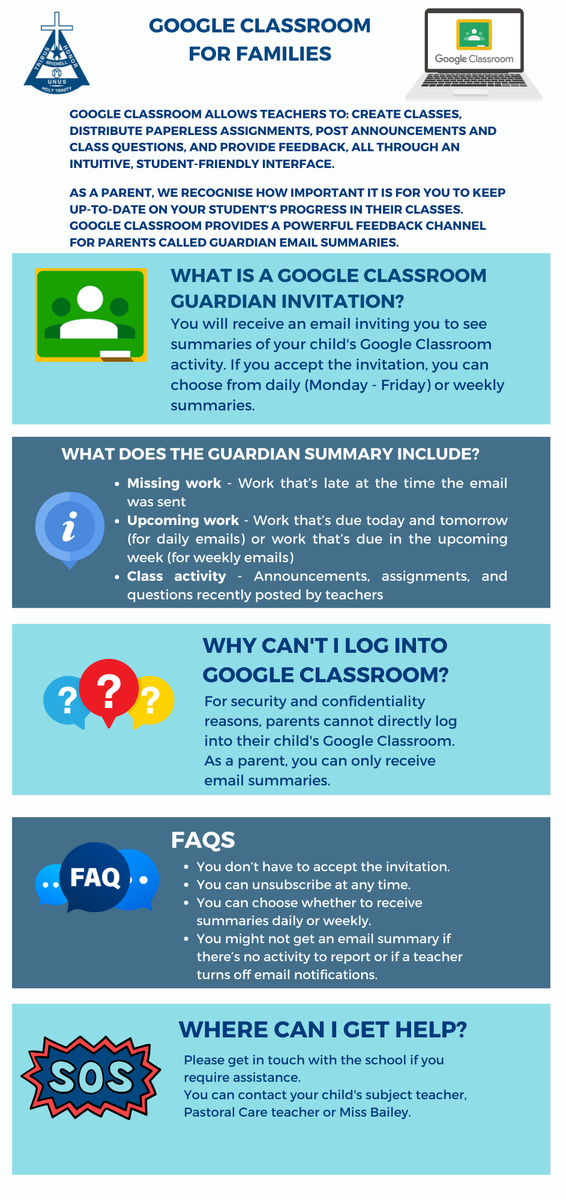
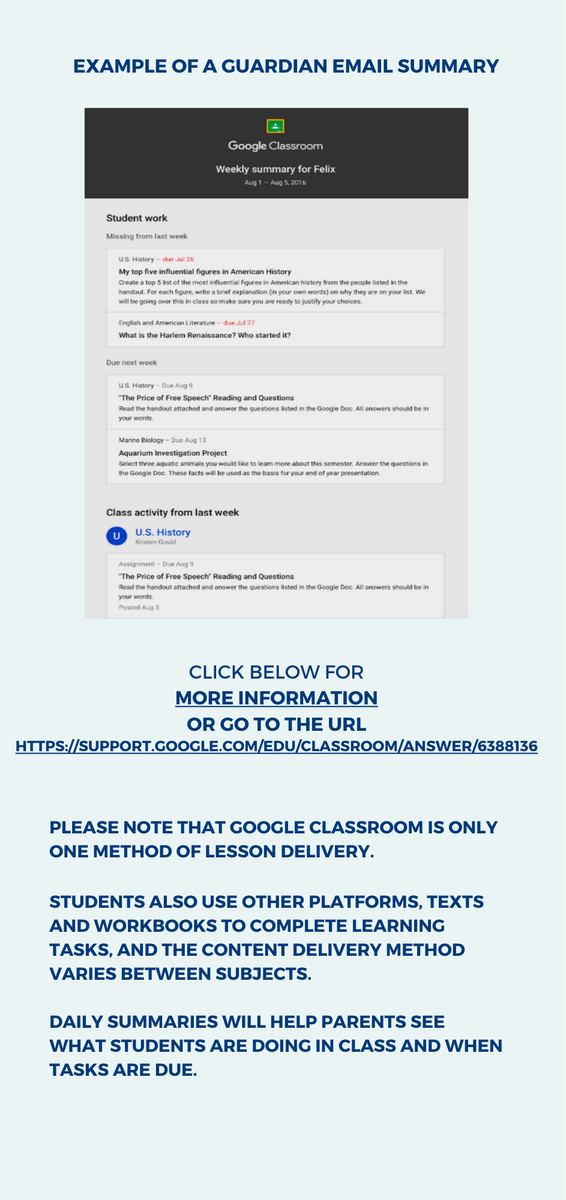


It would be appreciated if parents could read the information in the booklet and discuss the issues raised with their children. The assessment process is similar to that which the students will encounter in Stage 6 as they prepare for their Higher School Certificate.
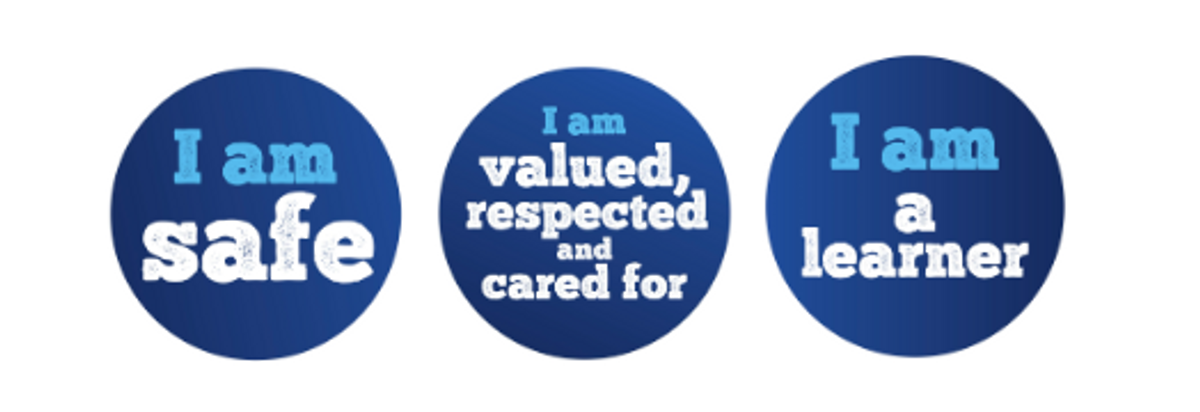

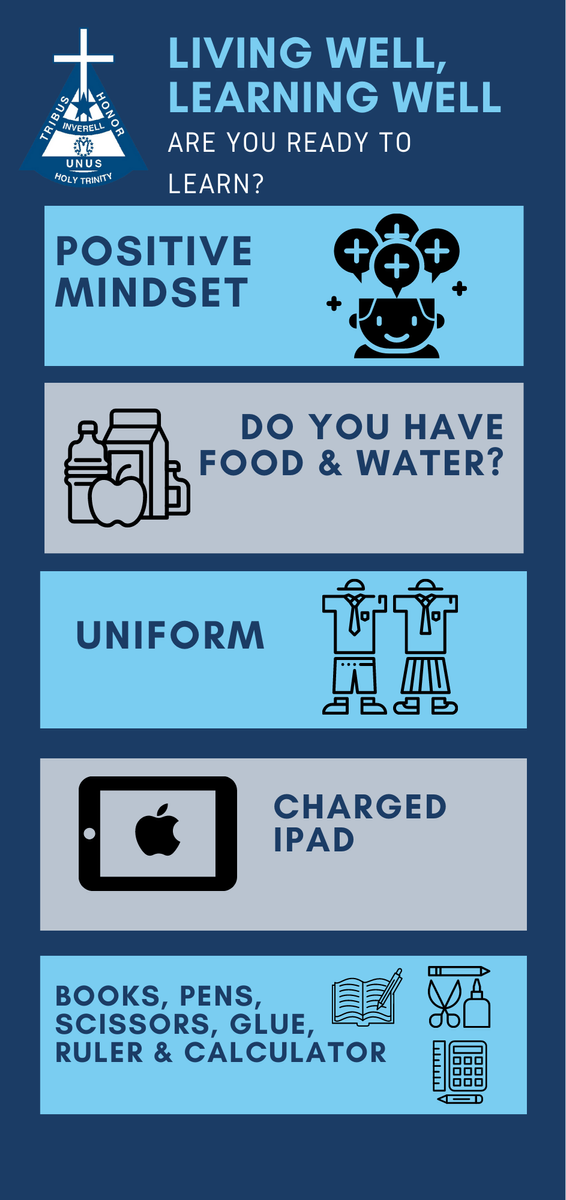
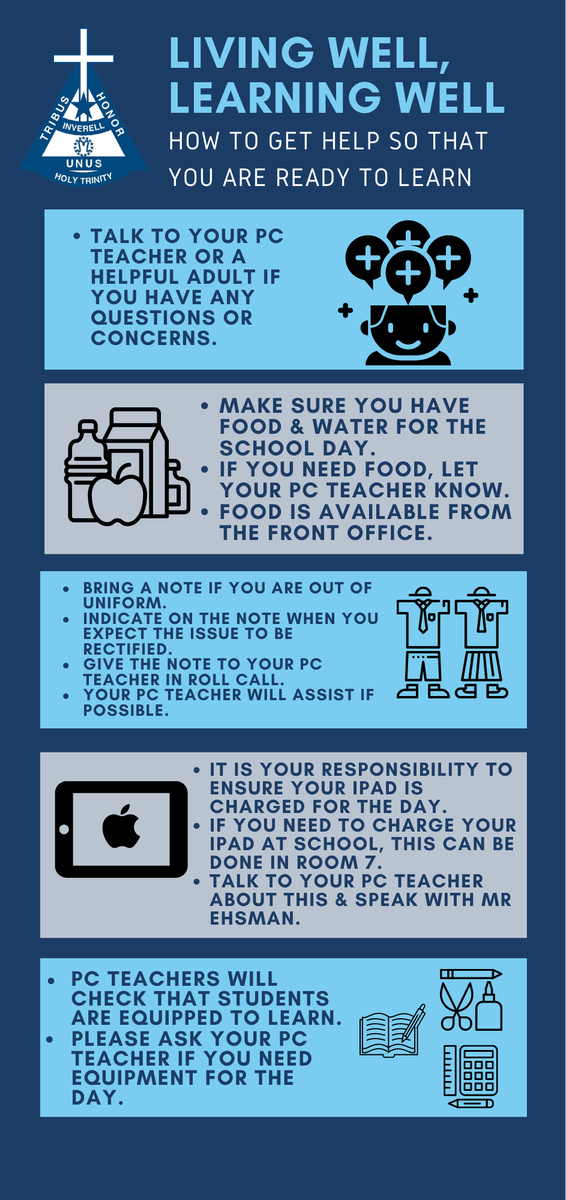


Students are not permitted to use their devices unless instructed by a teacher. This includes both the classroom and the playground. The students are aware of this policy and receive constant reminders in Pastoral Care, their teaching classes, and there are also many posters displayed all around the school.
If a student needs to use their device, they must first seek permission from a teacher and use it in an area designated by the teacher. This is usually under their direct supervision or outside the Secondary staffroom.
If students are unable to follow this policy, then their phone is confiscated and placed securely in Miss Bailey's office, where it is collected by the student at the end of the school day.
Teachers record each time a device has been confiscated. After the device has been confiscated for a second time, it remains at school until it can be collected by a parent/carer.
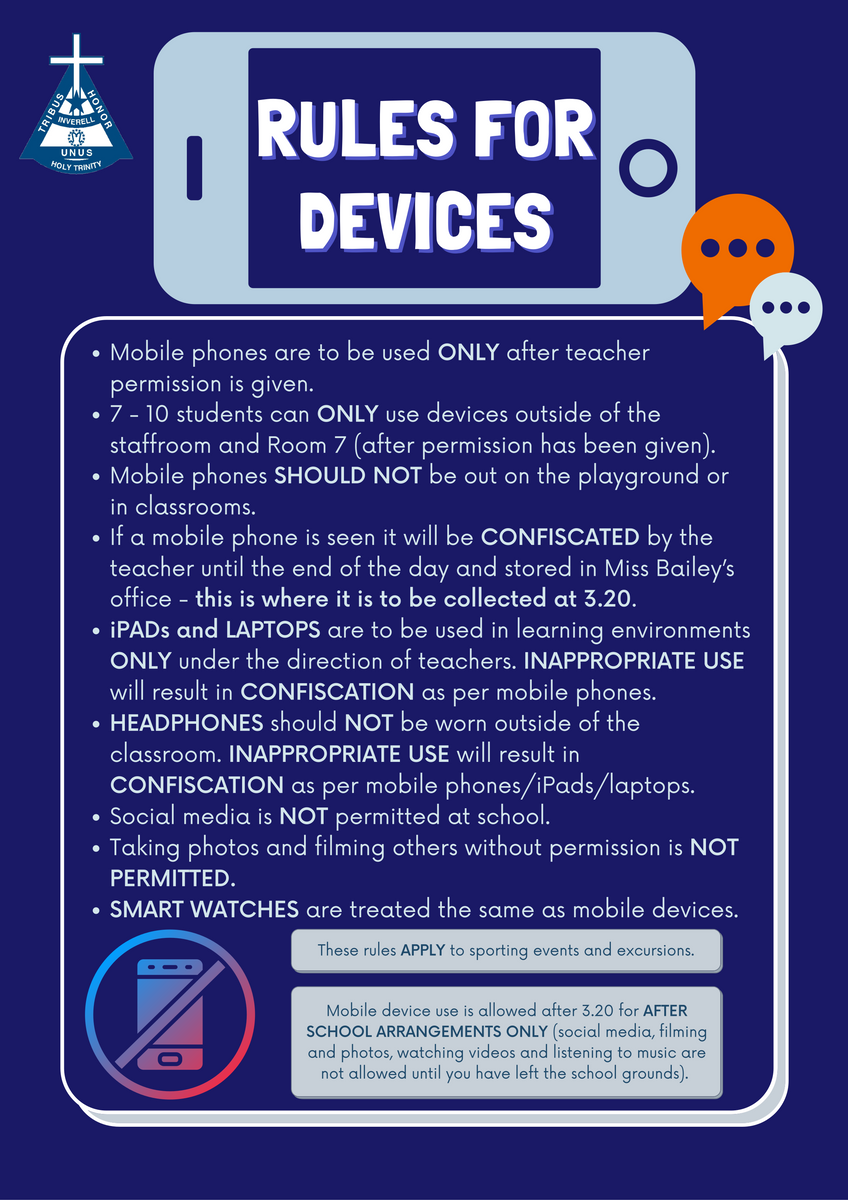

Year 7:
7J – Mr Jack Jeffery
7K – Miss Kristina Majetic
7M – Mrs Veronica McCormick
7W – Mrs Carrie Watchirs
Year 8:
8G - Mr Anthony Gaias
8M – Mr Ricky Muggleton
8T- Mrs Jane Taylor
8W – Mr Sam White
Year 9:
9C – Mrs Claudia Dolbel
9E – Mr Jeremy East
9G – Miss Lauren Green
9M – Mrs Christine McLachlan
Year 10:
10C - Miss Claudia Cush
10U – Mr Blake Uebergang.
Students and parents are encouraged to approach the relevant Pastoral Care teacher if they need assistance.
Miss Kim Bailey
Mr Sean Baldwin
Mrs Kylie Butler
Miss Claudia Cush
Mrs Angela East
Mr Jeremy East
Mr Peter Ehsman
Mr Anthony Gaias
Miss Alana Goldman
Miss Lauren Green
Mrs Mary-Jane Guest
Mrs Malynda Hiscock
Mr Jack Jeffery
Mr David Koch
Mrs Veronica McCormick
Mrs Christine McLachlan
cmclachlan@arm.catholic.edu.au
Mr Ricky Muggleton
rmuggleton@arm.catholic.edu.au
Mr Matthew Pye
Mrs Kristen Smith
Mrs Jane Taylor
Mrs Katherine Townsend
Mr Blake Uebergang
Mrs Carrie Watchirs
Staff can be contacted directly using the email address above or via the Compass portal.